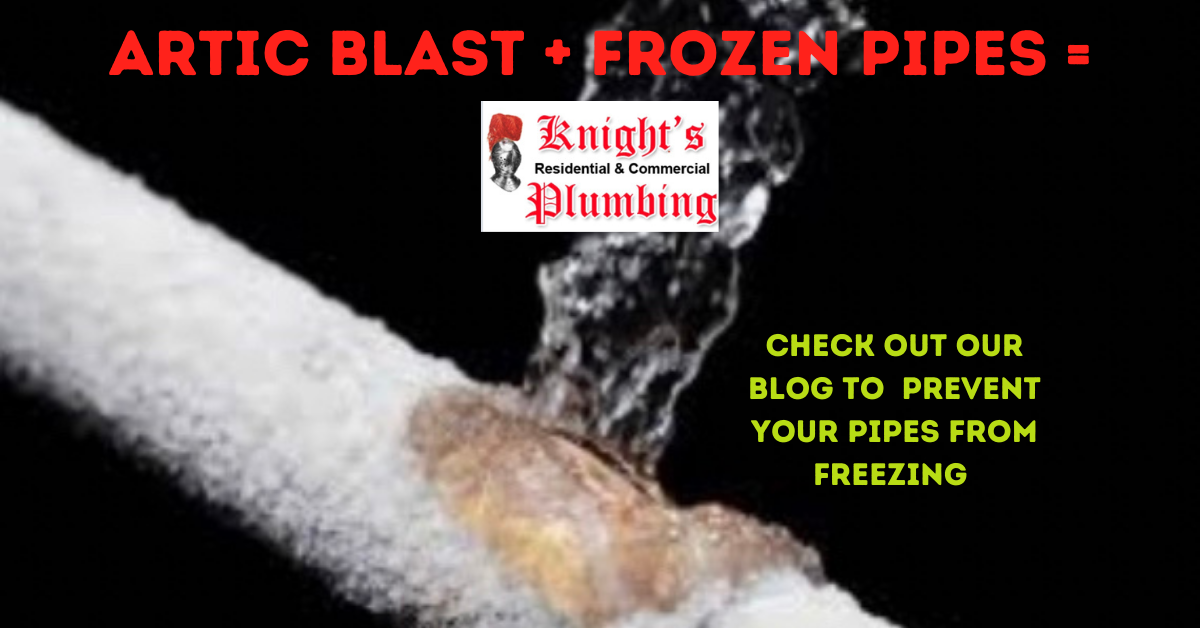Freezing Temperatures in Houston!
Houston are you ready for these freezing temperatures? The news is predicting temperature colder than the Houston area has seen in decades! One report suggested it could get as cold as 5 degrees this Monday, and we haven’t seen it that cold here since January of 1930. This upcoming arctic weather blast is no joke, the time to act to protect your home from freezing weather is before the temperatures drop.
Take a look at some steps you can take to hopefully protect your home.
How Quickly Can My Exposed Pipes Freeze?
The pipes will freeze at temperatures of 20 degrees Fahrenheit and below. Of course, just how long it takes for pipes to freeze at these temperatures depends on a few different things. For instance, when one’s pipes will freeze is mostly dependent on:
Insulated pipes: For pipes that are pretty well insulated, one could expect that their pipes may freeze after 6 hours of no use or heat.
Poorly insulated pipes: For pipes that have poor or no insulation, freezing risk will become imminent after as little as 3 hours, when in temperatures of 20 and below, without use or access to a heating source.
Average: The average amount of time it takes for pipes to freeze and then burst in temperatures of 20 degrees and below, without a heating source or use is about 4 to 5 hours or so.
What Are the Best Ways to Avoid Frozen Pipes?
Protect any exposed outdoor pipes with insulation, or use a foam sleeve to guard your hot and cold water pipes. Insulation is an inexpensive preventive measure against what could otherwise be a costly problem. When temperatures are predicted to be as cold as we’re hearing, ANY protection around your pipes is better than nothing. If you’re installing your pipe insulation, don’t forget to wrap any pipe bends and any plumbing fittings that are exposed to the elements. If using split-foam insulation as a pipe wrap, be sure to secure it with either plastic zip-ties or even duct tape will work.
- Dont forget about the garden hose! Any water in a garden hose in hard freeze conditions (less than 25 degrees for more than 4 hours) will expand, usually damaging the hose (if you’re lucky) and could cause the supply pipe for that fixture to burst as well. Turn off outdoor faucets at their shutoff valves. Drain any water out of the pipes by opening bleeder cap on the shutoff valve. Leave the bleeder cap open with a bucket underneath and continue to let drip. Once it is disconnected, roll it up to aid with draining and store it in a garage or shed to prevent any damage to the hose.
- Open kitchen and bathroom cabinet doors to allow warmer air to circulate around the plumbing. Be sure to move any harmful cleaners and household chemicals up out of the reach of children. Many kitchen and bathroom sinks are installed on exterior walls, meaning any pipes going to that fixture are subject to freezing.
- Make sure to run water through every valve in your house frequently. This keeps the water flowing, which reduces the risk of freezing. It also protects against burst pipes if the water does freeze, because it prevents pressure from building up between the faucet and an ice formation.
- If you have pool dont forget to turn on your pool heater and keep your pool runnig as well!
If you’re still unsure what you can do to prevent frozen pipes or need a professional opinion. Knight's Plumbing is here for you 24/7, give us a call at 281-333-0733 or 281-480-0733.
To check out our previous blog "3 Reasons Never to Use Drain Cleaners" click here!
